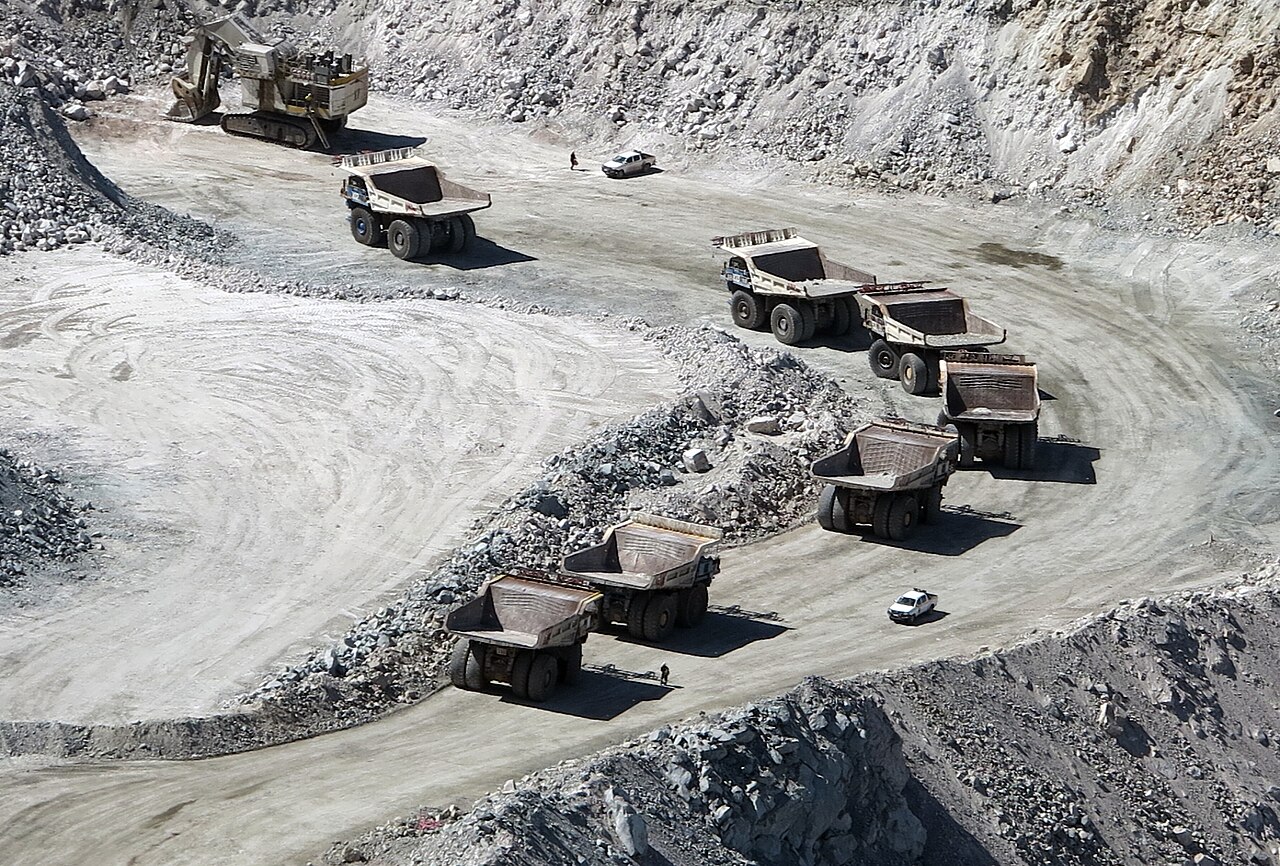Cutting North Korea’s Access to Chinese-Controlled African Uranium

Published by The Lawfare Institute
in Cooperation With

Editor’s Note: North Korea is a difficult challenge for every U.S. administration, and its nuclear program is the top concern. The Carnegie Endowment’s Jayita Sarkar argues that Chinese companies may act to facilitate North Korean access to uranium from Africa and that stopping this should be a diplomatic priority for the new administration.
Daniel Byman
***
When the Biden White House released its readout of the president’s meeting with Chinese President Xi Jinping back in November 2024, North Korea was mentioned merely once, in the context of North Korean troops fighting for Russia in Ukraine. The second Trump administration that takes office might have a wholly different relationship with Moscow, but North Korea is likely to remain as a burr in its hide. Pyongyang’s unique ability to leverage both Beijing and Moscow while augmenting its nuclear weapons, delivery systems, and fissile material stockpile makes it distinctive as an adversary that necessitates a bipartisan response from U.S. policymakers.
The Project 2025 playbook, the policy blueprint of the second Trump administration, highlights the threat posed by China and North Korea but does not connect the two issues. A closer look at Chinese-North Korean relations reveals long-standing collaboration that has ensured that the North Korean government continues to get materials and revenue to develop its nuclear weapons and ballistic missile programs, despite international sanctions.
One such critical material is uranium, the necessary raw material for North Korea’s nuclear weapons stockpile. China’s acquisition of uranium from Namibia—where Beijing is the majority owner of both Rössing and Husab mines, at 68.62 and 90 percent, respectively—raises serious proliferation concerns posed by potential supplies of this critical component to North Korea. The Rössing mine itself has been a notoriously transnational endeavor since its development in the late 1960s, with even Iran owning a 10 percent stake in it, making it a proliferation concern now as it was back then.
North Korea-watchers inside the Beltway would not be entirely surprised by the news of Namibian uranium ending up in North Korea through Beijing. After all, during the first Trump administration, the UN Security Council’s Panel of Experts (UN POE) that oversaw global sanctions against North Korea conducted an investigation on Pyongyang’s connections with Namibia in the nuclear and conventional domains. The U.S. Department of Treasury even sanctioned a Namibian-based subsidiary of a Chinese company for its involvement in financially supporting the North Korean regime. Since then, there has been radio silence on the Namibian-North Korean-Chinese triangle.
What was scandalous was that the Namibian government itself was directly implicated in the evasion of sanctions. International pressures through the UN POE compelled the country to sever its ties with several firms after it came to light that its government had hired sanctioned companies with connections to North Korea’s main arms dealer to complete several major infrastructure projects, including construction of a military base and the Namibian State House, the president’s residence, in the capital city of Windhoek, thereby funneling revenue to the North Korean regime.
That the Namibian government has adopted a neutral position on the Ukraine war and maintains strong economic ties with Moscow indicates that similar instances of sanctions-evasions could be enabled also by Russia, a country the Trump administration is expected to have close ties with. Like Pyongyang, Windhoek has carved out a positive relationship with both Moscow and Beijing. The motivation for its close relationship with the two extra-African powers is economic, not military—namely, the sale of Namibian natural resources in return for infrastructure development and investment.
Windhoek’s economic needs, however, make China a bigger player in Namibia than Russia. From Beijing’s perspective, cultivating ties with Namibia is part of its larger geostrategic goal to become the dominant political player on the African continent. The annually held Forum on China-Africa Cooperation (FOCAC) summit, which enters its silver jubilee year in 2025, reveals among others the grand continental ambitions of the Asian power. At FOCAC 2024 last September, the Chinese president held bilateral talks with each African leader and reaffirmed his faith in “an all-weather China-Africa community with a shared future for the new era.”
The uranium links between China and North Korea through Namibia have important ramifications for both U.S. nonproliferation goals and the future of the U.S. geostrategic position in Africa. Since a Russian veto in March 2024 ended the tenure of the UN POE, there is currently no clear global institutional mechanism to deal with sanctions compliance vis-a-vis North Korea. This increases the onus of individual governments to conduct due diligence. Due diligence is, however, made very difficult by the global nature of North Korea’s efforts to evade sanctions, which target jurisdictions around the world that have limited sanctions implementation infrastructure or capacity. Namibia’s plentiful natural resources, weak institutions, low levels of armed conflict, and active business community make it particularly susceptible to these sanctions-evading activities.
The global disunity that plagues the non-proliferation regime raises further challenges in enforcing sanctions compliance. The P5, or five permanent members of the UN Security Council (China, France, Russia, the United Kingdom, and the United States), have struggled to reach consensus on how to address non-proliferation issues, owing to Chinese and Russian intransigence. As a consequence of this P5 disunity, the UN Security Council has not agreed on any additional sanctions on North Korea since 2017, despite North Korea’s continued testing of ballistic missiles and recent reveal of increased uranium enrichment capabilities.
Against this fragmented backdrop, it is essential that the U.S. government continues to reengage its allies and partners to implement sanctions compliance, especially in places like Namibia that have vast natural resources. As the second Trump administration reorients U.S. foreign policy, it is important not to lose focus on Africa, particularly where it concerns protecting U.S. interests against China. After all, relentless Chinese predatory takeovers of African natural resources in return for infrastructure investments in the continent continue to hurt U.S. interests in the region. Project 2025 already recognizes the importance of sub-Saharan Africa as part of U.S. competition with China over access to critical minerals. Uranium, given its military and civilian uses, has major implications for preserving present and future U.S. national security priorities.
Chinese officials are growing increasingly uncomfortable with the growing Russia-North Korea cooperation, offering an opportunity for Washington to engage Beijing bilaterally. There are historical precedents of Republican administrations (think Nixon and Reagan, for instance) effectively engaging one adversary while balancing the other. Could a reengagement with adversarial China be in the cards for the new Trump administration? The anti-China rhetoric of President Trump does not give much hope, realistically speaking, but it is a policy innovation worth exploring.
Project 2025 predicts the new administration will unleash the “most significant shift in core foreign policy principles and corresponding action since the end of the Cold War.” This transformation of the policy landscape does not have to come at the expense of U.S. long-term geopolitical interests. Taming China in Africa and arresting the export of African uranium to sanctioned countries that China has enabled, is very much in Washington’s interest for the next four years and beyond.




-(1).png?sfvrsn=fc10bb5f_5)
